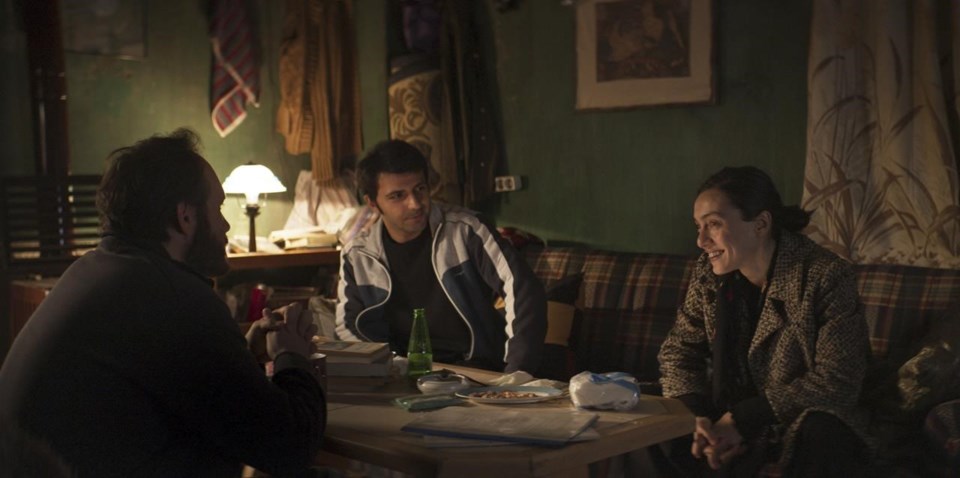Nuri Bilge Ceylan makes long , by movie standards, but short ones by Russian literature standards.
There may be no filmmaker more consciously working in a novelistic tradition. The Turkish director counts reading âCrime and Punishmentâ as a formative experience. His Palme d'Or-winning 2014 film âWinter Sleepâ adapted a pair of Chekhov short stories. But regardless of any direct correlations, Ceylan's films â colossal, existential, talky â reach for (and often attain) an enveloping vastness that recalls those big 19th century books. He sets thorny stories peppered with prickly philosophical questions against expansive landscapes. His films don't burrow into you, you burrow into them.
Ceylan's latest, bears a name that â like his âThe Wild Pear Tree" or âOnce Upon a Time in Anatoliaâ â would do well as a parody arthouse title. The opening â in which a dark figure, seen from afar, steps off a bus onto a snow-blanketed plain on the Eastern Anatolian steppes â is likewise not hiding its tone of solemnity.
Our solitary man is Samet (Deniz CeliloÄlu), who, like is a snobbish, misanthropic educator in a malcontented winter. Countless movies like âThe Holdoversâ have conditioned us to feel an automatic sympathy for such teacher characters, but doubts steadily accrue about Samet.
He's not especially friendly with his colleague and roommate Kenan (Musab EkiÌciÌ). When he's reluctantly set up for tea with a fellow teacher, Nuray (an exceptional Merve Dizdar, winner of best actress at ), from a nearby village, he mostly moans about the backwardness of their rural region. His four-year term is nearly up, and he says he's bound for Istanbul. At school, Samet styles himself as a less rule-bound teacher, looking down on some of his colleagues. But he's no inspiring leader to his young students, either. âNone of you will become artists,â he says in one rant.
Later, Samet will ask: âDoes everyone have to be a hero?â He, certainly, is more of the anti-hero variety, but he's also one of the most complicated main characters I've seen in years. He's quite bitter, particularly after the student he has the warmest relationship with â Sevim (Ece BaÄci) â accuses him of inappropriate behavior. She does it as a way to get back at him for concealing a love letter she wrote that was confiscated. He appears to be innocent, but there's also something unmistakably intimate about their interactions. He gives her discrete gifts and and purposefully leaves the door open when she visits his office.
Samet is investigated for not ârespecting distanceâ with Sevin and her classmates, a somewhat ironic charge given that Samet, a sour pessimist, seems to be keeping himself at a distance to most everything. âAbout Dry Grassesâ tracks the investigation of Samet, yet it hinges more on his relationship with Nuray.
She bears a limp, a result of a suicide bombing during a protest in Ankara. In the film's centerpiece scene, they spar over dinner in an extended dialogue about politics. She has fight and spirit still in her, and believes in the benefits of community. Samet is more hopeless and jaded, a quality that attracts Nuray, almost against her wishes. Not because she agrees with Samet but because she fears, maybe, that he's right.
Ceylan has a knack for prolonging such debates in his films past their natural end point, turning the exchanges into something that can feel too dryly essayist. But it also may be his nature to bring a film to the very brink of philosophical quandary. In âAbout Dry Grasses,â he goes a step further with a fourth-wall flourish at the height of Samet and Nuray's conversation. Why, at this point, does Ceylan insert a stark reminder that this is a movie? Is it his own Samet-like withdraw or a sudden flash of candid revelation?
Either way, it goes to the heart of Ceylan as a filmmaker. Far from just a bookish movie director, he has adopted many of cinematic modes of his heroes, Tarkovsky and Bergman, and translated them into his own unique and still evolving vernacular. As much as Russian literature may be a foundation for him, his movies are richly of Turkey. There are aspects of âAbout Dry Grassesâ â the ID-checking police, the sexist bureaucrats in the school system â that place the Samet-Nuray dichotomy in a social context that has surely shaped them.
There's a profound, unresolvable melancholy to âAbout Dry Grassesâ that's hard to shake. It's not just that Nuray is better than Samet â though she certainly is. It's the sad tragic quality to Samet. He takes photographic portraits that appear at moments in the film. Ceylan, too, was a still photographer. It's hard to wonder â especially in thinking about that metafiction moment â how much he identifies with Sevim. But I wouldn't trust any one reading of âAbout Dry Grasses,â even my own. It contains too many multitudes for that.
âAbout Dry Grasses," a Janus Films release, is not rated PG by the Motion Picture Association. In Turkish with English subtitles. Running time: 197 minutes. Three and a half stars out of four.
Jake Coyle, The Associated Press



